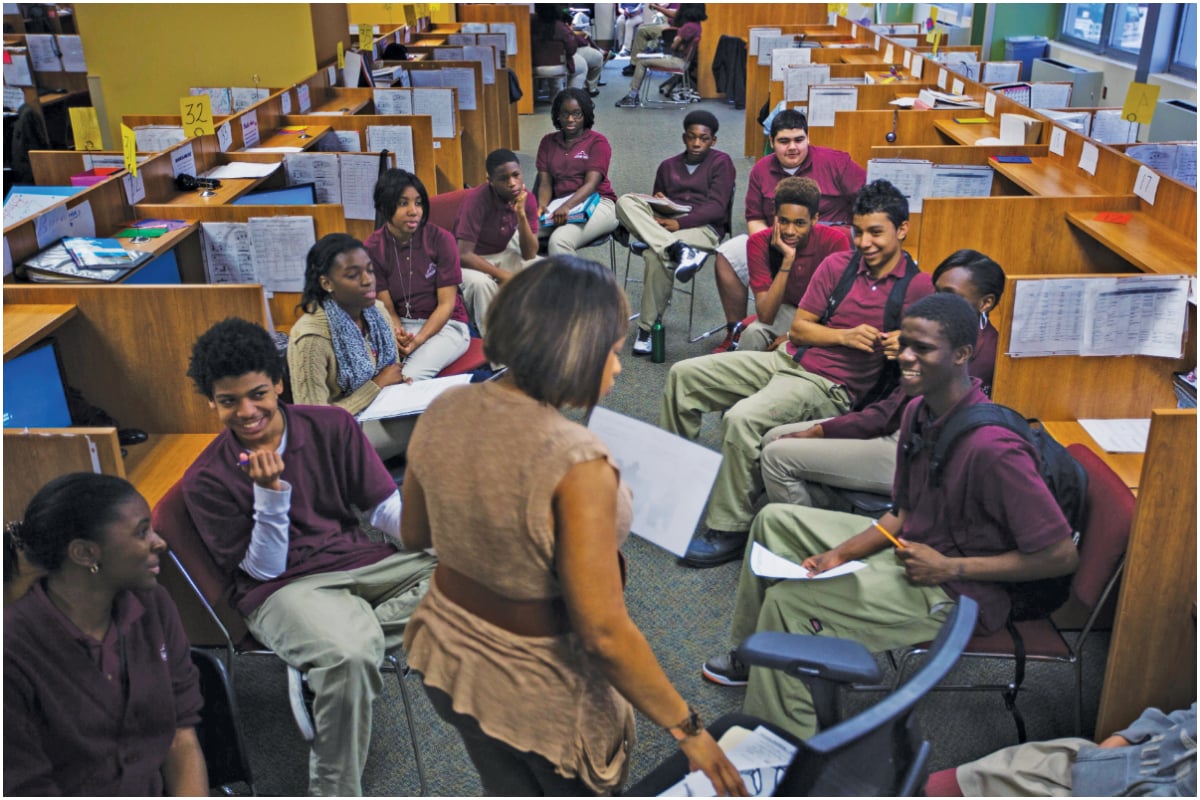
Lack of Training in Diversity and Equity
The modern liberal education system has a long history of well-documented institutional racism. American scholars now acknowledge how slave labour, the forcible appropriation of indigenous land for financing colleges and universities, the eroding legal protections for affirmative action and the problems associated with the standardised testing contribute to the inequity of student experiences and degree attainment.
However, this is not a new criticism of liberal education, as the American media portrays it. For example, in 1984, Marl Bray wrote a paper: “International Influences on African Educational Development” in the International Journal of Educational Development.
Bray argued that as a direct outcome of colonial legacies, standardised, dominating English language and Eurocentric thinking dominate most educational settings.
Edward Said’s seminal book, Orientalism (1978), is another example of how long the scholars have called out the colonial project inherent in academia. Edward Said, a Palestinian academic working in the mid-late 20th Century, wrote Orientalism to underline the essentialising narratives of the Western scholars that he saw as dominating the East throughout history.
In his account, the so-called ‘East’ was the geographical territory spanning Asia, North Africa and the Middle East, while the ‘West’ was seen as the European Great Powers and, later, North America.
Said has used various derivatives of the word Orient in ‘Orientalism’, which means the East, the direction the sun rises. Geopolitically Orient signifies the Middle East, Asia and the Far East territories once a part of one European Empire.
Said uses the word Orient to signify a representation system framed by the political forces that brought the Orient or the East into the Western Empire, Western learning and Western consciousness. The West uses the word to the East. It is a mirror image of the inferior, the alien (other), to the Occident (West).
There is still a lot of racial inequality and colonialism in colleges and universities but most teachers in Pakistan do not have formal training in diversity and equity. As a result, the instructors use resources, programmes, books, websites and articles for pedagogical assistance without the ability to filter out the colonial interest. To prevent propagating racism, colonialism and oppression in academia, educational developers and those incomparable support jobs should critically reflect on their profession.
Acknowledging the presence of racism, colonialism and oppression within disciplinary norms and practices is an essential step towards a more equitable and inclusive academic community. Like every profession, educational development has principles, norms, practices and assumptions. It is critical that we, as an educationist, look in the mirror and examine how we can better assist the teachers in their efforts to improve the learning outcomes.
To understand how we perpetuate injustice in education, we must examine our beliefs and assumptions about the legacies of racism and colonialism. Before we can take purposeful and practical actions to address these concerns and assist the faculty in doing the same, we must first be aware of the problem.
Catherine Manathunga in 2006 wrote, “Doing Educational Development Ambivalently: Applying Postcolonial Metaphors to Educational Development?” Manathunga identified colonial underpinnings in the educational development in this publication using post-colonial concepts.
The scholars have been more interested in rigorous experimental design, learning analytics and quantitative methodologies in education in recent years. I would argue that “evidence-based” approaches to educational policy are neocolonial in the context of educational development.
When researchers project their goals and voices onto the narratives and lived experiences of the study subjects, the traditional academic analysis techniques frequently involve steps towards verification and validity, which may be limiting, problematic and even violent.
Active learning is an example of this reliance on empirical data. Active learning has been extensively studied, especially for the students from underrepresented groups, including minorities and the first-generation college students. If not all, the educational developers should urge the teachers to include active learning in their instructions.
“Idea exchange” with academic developers in “developing settings” is discussed by the educational developers who plan to go outside of the United States to teach faculty how to employ active learning methodologies, people unfamiliar with the Western methods of active learning may suffer discomfort and dissonance due to their unfamiliarity with active learning.
Should educational developers even try to ‘find’ a universal teaching approach if we cannot address or broaden the Western ideals ingrained in active learning to include different culturally informed ways of learning?
If our students come from the East Asian nations where educational techniques may be used differently, what unique hurdles or problems does this focus on active learning impose on them?
The instructors, who utilise active learning tactics, should encourage their students to develop culturally responsive settings alongside active learning methodologies so that their students’ diverse cultural backgrounds can serve as assets in their learning experiences. Exclusionary teaching and a colonial approach to education might come from our reliance on empirical data.
It is possible to go in numerous directions with this kind of thinking. Examining other often-stated educational development values is a part of this. In addition, we should consider the following questions:
As a field, what core ideals and principles guide educational development? Who has and has not been a part of these decisions, and why? What kind of settings are we working in when we do our studies?
Race and colonialism have had a significant impact on establishing educational methods, norms and assumptions.
The policymakers in Pakistan make their decisions transparent for examination by the educational developers and those who assist the college teachers in their instructions.
(The writer is an Edtech expert)
Catch all the Economic Pulse News, Breaking News Event and Latest News Updates on The BOL News
Download The BOL News App to get the Daily News Update & Live News.








 Read the complete story text.
Read the complete story text. Listen to audio of the story.
Listen to audio of the story.